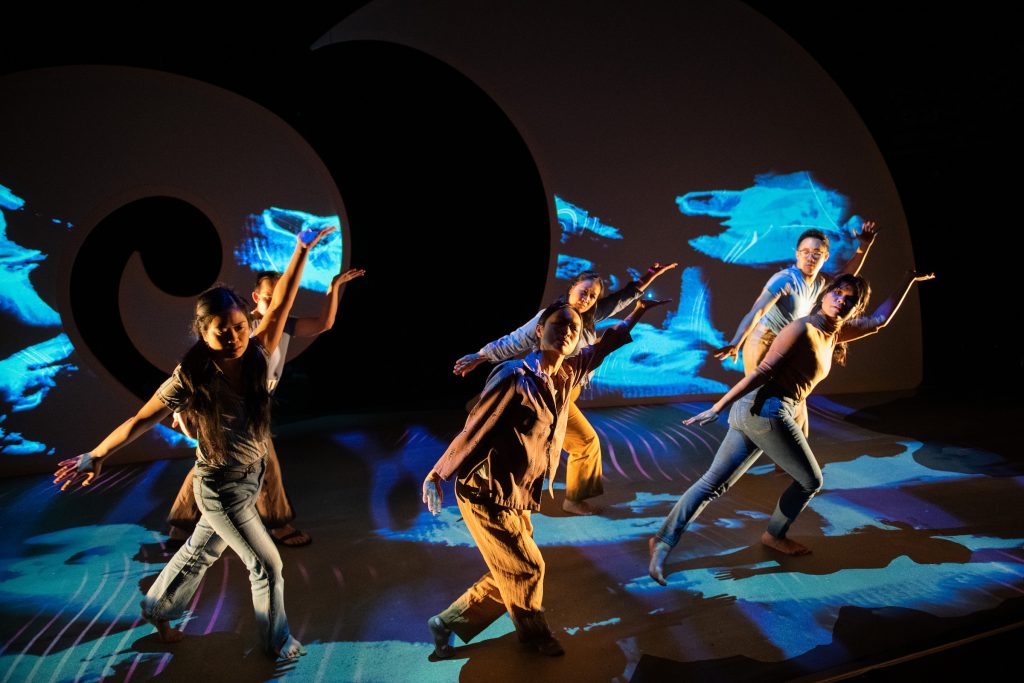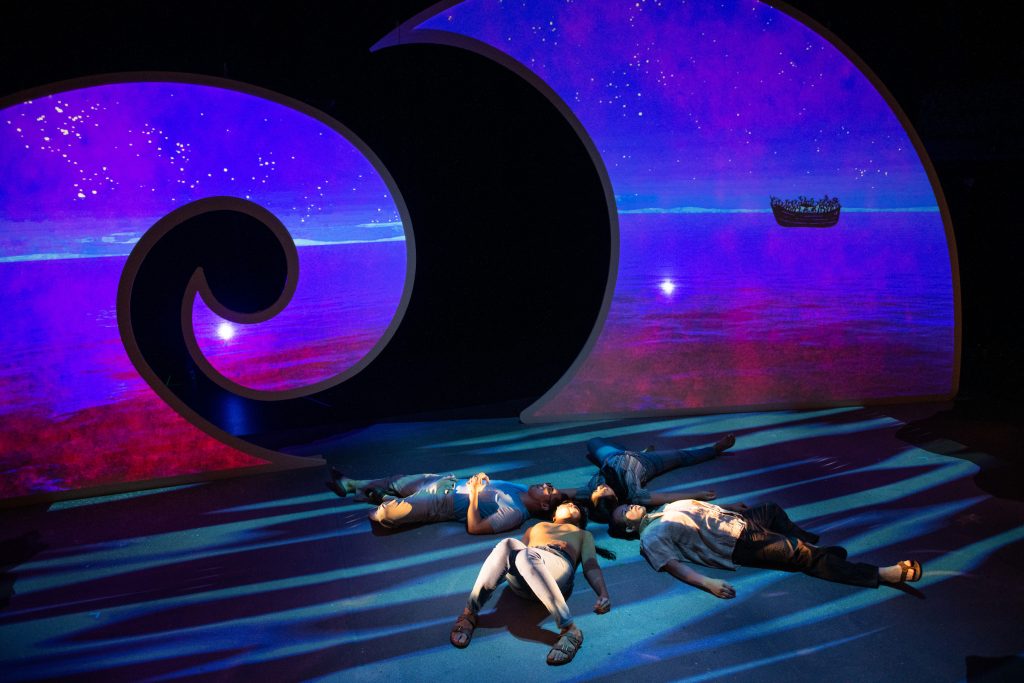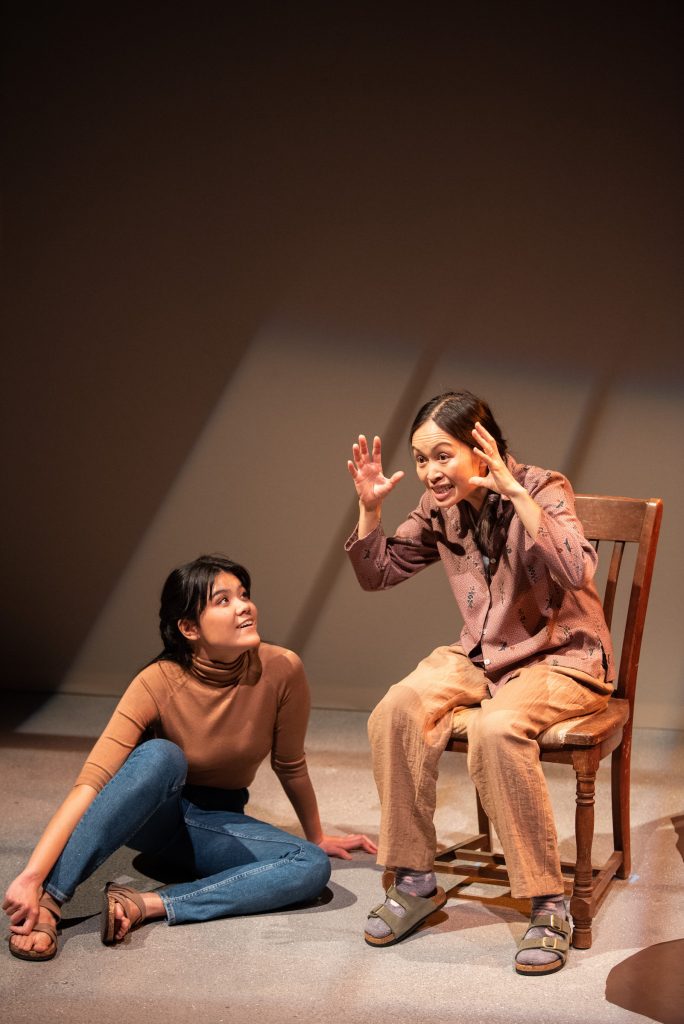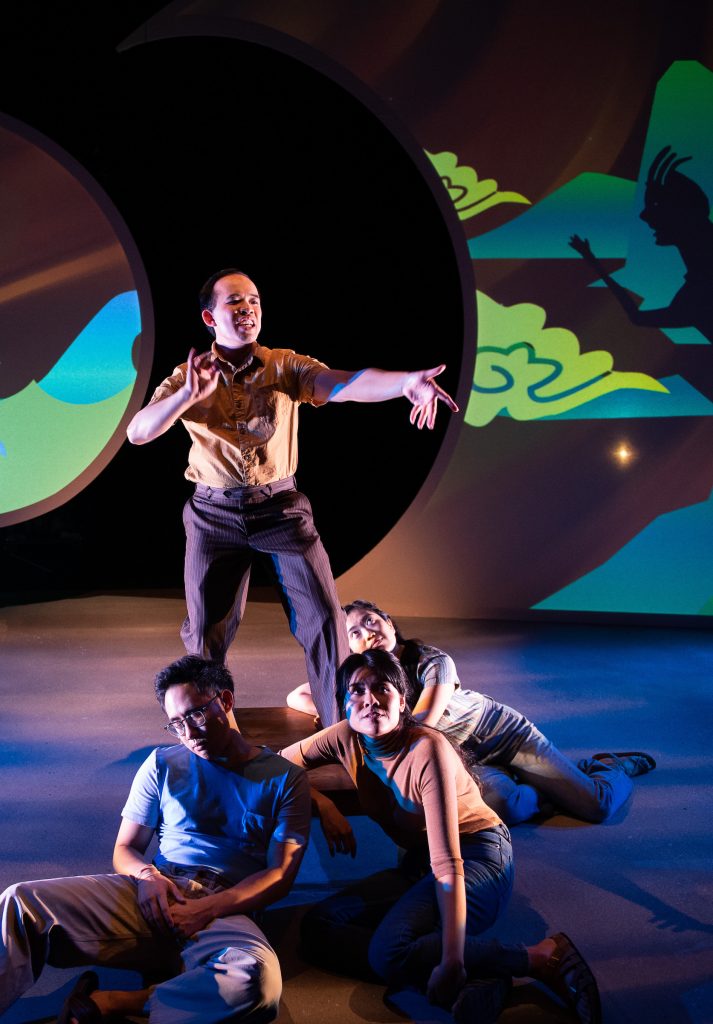
Credit: Emily Cooper
Livestreamed from The Cultch until November 7, 2021
Tickets from $29 at www.tickets.thecultch.com
Posted November 5, 2021
There are more people on the move than ever before in the history of the planet – and I’m not talking about snowbirds heading south to avoid Canada’s winter. Refugees are flooding in hitherto unimaginable numbers out of war-torn countries or nations suffering economic collapse. Some are seeking more temperate climates as global warming turns their homeland into scorched earth. Others are leaving as corrupt, oppressive regimes tighten their hold. Millions are risking their lives crossing oceans or borders to make a better life for themselves and their children.
Following the Vietnam War (1955-1975), some 800,000 Vietnamese took to small, often leaky boats and eventually found safe harbour. But, according to the United Nations High Commission for Refugees, between 200,000 and 400,000 Vietnamese boat people died at sea.

Credit: Emily Cooper
This is the background to Sangeeta Wylie’s we the same, directed by Ruby Slippers’ Diane Brown and Patricia Trinh and livestreaming until November 7 from The Cultch. It’s inspired by the true story of the Truong family who, with mother, father and six kids fled Saigon and ended up in Victoria, BC. Their story is not new but it is deeply personal and, given a highly theatrical treatment, it resonates well beyond the overwhelming numbers we read about. And, of course, this intimate story reaches into the present as, nightly on TV news, we see images of refugees on the move or living in unbelievably squalid refugee camps.
In Wylie’s play, 35-year-old Vietnamese/Canadian Mai is trying to get her 60-odd-year-old mother Hà to tell her about the family’s escape from Saigon – something Hà has not wanted to talk about before. Mai is insistent and so, despite Hà saying that it’s all “in the past. Why go back?”, Hà opens up and tells her daughter about the family’s journey from Vietnam, beset repeatedly by pirates and storms at sea, to Canada.
Shortly after leaving Vietnam, Bao (Hà’s husband and Mai’s father, played by Christopher Lam) is separated from his wife and children, including Chinh (Brandy Le) who, at the age of two was given to Hà’s sister to raise because it was believed he was bringing bad luck to his own family. However, the decision was made to take reluctant Chinh with them.

Credit: Emily Cooper
we the same goes back and forth in time and except for the strong, focussed, elegant performances of Elizabeth Thai (as Hà, and herself a ‘boat person’ back in 1981) and second generation Vietnamese/Chinese Grace Le (as Mai) it would be easy to lose track of time and place. Hà is a sort of Mother Courage character who ferociously protects her little family and manages to deliver her children safely to Canada. Risks include starvation and rape. Hà soon sees prostitution as a way out for some of the women – like Biên (Khaira Ledeyo) – but not for herself.

Credit: Emily Cooper
Stories like the Truong family’s have been told before but Ruby Slippers’ treatment is absolutely beautiful with lighting design by Sophie Tan and set design by Kimira Reddy. The strong Canadian/Vietnamese fusion ambience (including shadow puppetry) with original musical composed and performed by Vi An Diep on a zither-like instrument is enhanced with choreography by Shanny Rann and visual design by Chimerik, a transdisciplinary collective with transnational roots.
we the same is a true and heartfelt East-meets-West family drama and a timely addition to the present anti-racism conversation.

